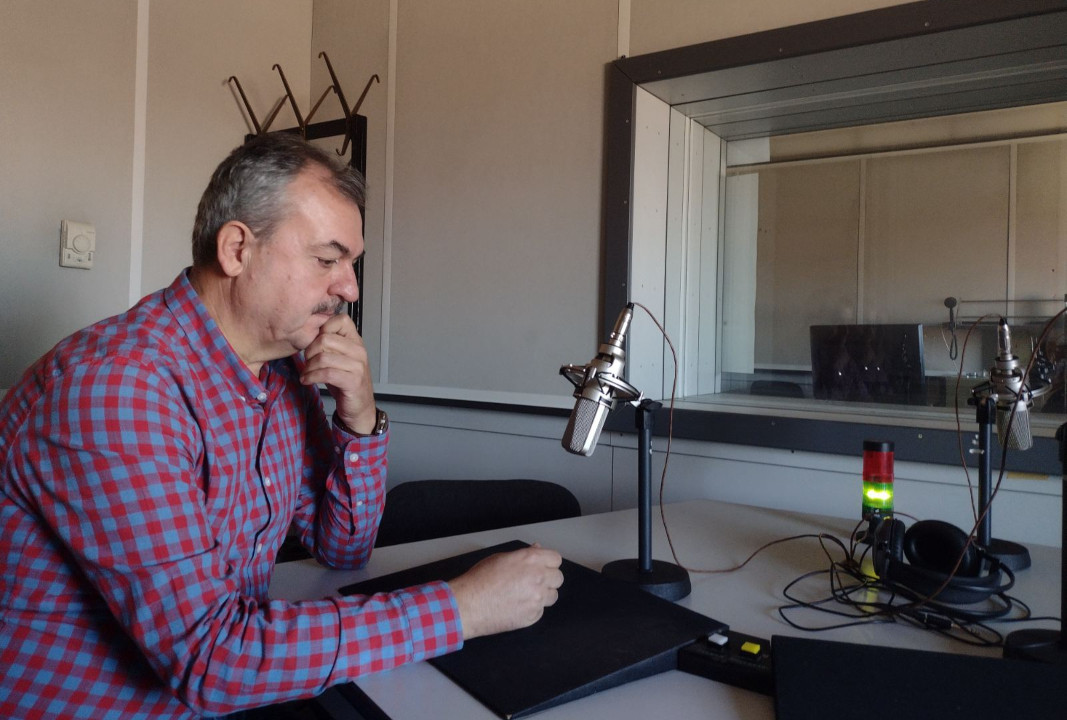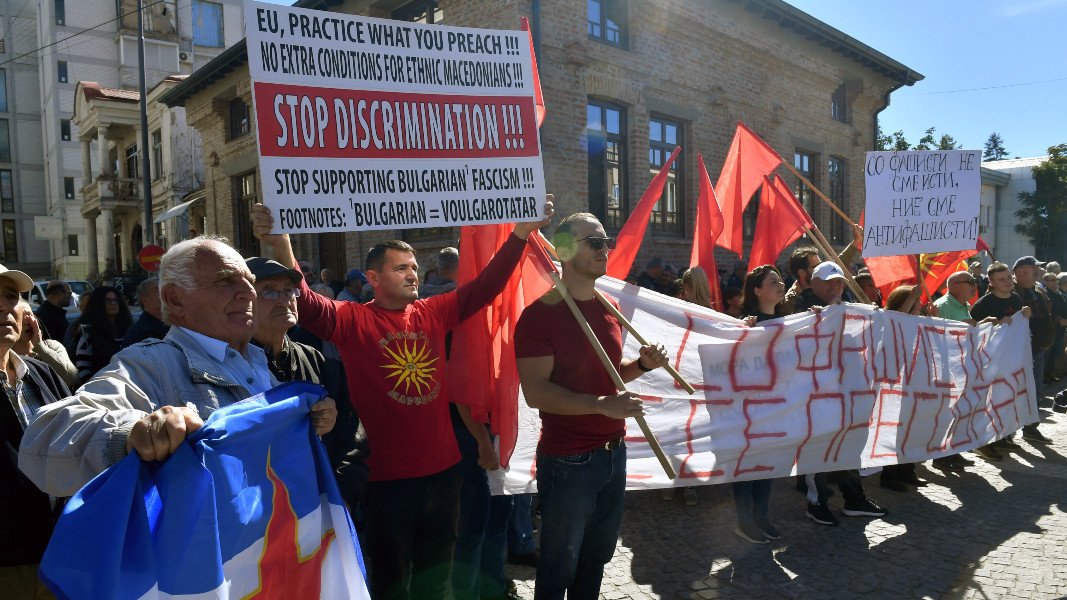After the official opening of two Bulgarian cultural clubs in Bitola and Ohrid, bearing the names of "Ivan Mihailov" and "Tsar Boris III", a bill with retrograde provisions was adopted at first reading in the parliament of North Macedonia. It prohibits the use of names for associations and non-governmental organizations, which according to Macedonian understanding were "fascist" or "may cause public tension". The rights of Bulgarians in North Macedonia became the reason for a meeting of the Bulgarian caretaker Minister of Foreign Affairs with the ambassador of North Macedonia Agneza Popovska, in which Minister Nikolay Milkov expressed concern about the latest developments in bilateral relations.
"There has been an ongoing radicalization of the political elite in North Macedonia against Bulgaria and everything related to Bulgarian-Macedonian relations for 2-3 years," journalist and head of BGNES agency Lyubcho Neshkov said in a comment on the topic. "What happened with the names of the Bulgarian associations is only the tip of the iceberg when it comes to the true reality in this country," the journalist, born in Belo Pole near Prilep in the family of Temelko Neshkov, who suffered repressions for defending Bulgarian self awareness, said in an interview with Radio Bulgaria. Lyubcho Neshkov has been living permanently in Bulgaria since 1985.

"It is not the names of the associations but the very existence of these cultural clubs that is seen as a problem there. It is something that we have been witnessing for nearly 80 years and more - a country building its new identity based on a state ideology and institutional hatred against a neighboring country. In fact, this is where we can find the roots of what we see in the relationships between the two countries these days. Hatred against Bulgaria on institutional and state level is the reason behind what is happening now."
Why did North Macedonia tried to "seize" the activity of the commission for solving the historical disputes between the two countries, formed according to the Treaty of friendship, good-neighborliness and cooperation signed in 2017? Until recently, politicians claimed that the topic was a priority of historians, but suddenly the parliament in North Macedonia decided to adopt a law that gives historical qualifications to figures from the past.

"Have you ever heard of a politician from North Macedonian not commenting on political figures or events from the past?” Lyubcho Neshkov asks. “No. They just want things to be interpreted in the way they interpret the ‘truth’ of what happened, according to their standards and dogmas imposed there since 1945. The treaty is part of the EU negotiation framework. What does the so-called French proposal, accepted by both sides, say? It says that the agreement from 2017 and in particular Art. 12, which refers to the protocol, to the historical commission and everything that is laid down in this document, must be respected. The authorities in Skopje have no way to escape from the implementation of this agreement. But in North Macedonia there are supporters of a totalitarian ideology that we do not know, because it has disappeared from Bulgarian political life for the past 30 years. This is a system where there is no opposition.”
The analyst of Bulgarian-Macedonian relations says that the anti-Bulgarian position of Skopje is also anti-European one and that the geopolitical views of Russia and Serbia towards the EU stand behind it.

Looking towards the opening of the Macedonian cultural club, named after Bulgarian poet Nikola Yonkov Vaptsarov, in Blagoevgrad on October 30, Lyubcho Neshkov urged the citizens not to succumb to provocations:
"I hope, I believe and I want very much that there will be no incidents, for one main reason - this club can be opened and and it will stay the way it is. Other actions will be an occasion for creating tension. The Bulgarian state is not threatened and the purpose of what is being done is obvious. Let them come, let them open it and let's see who will go there. After all, it is know who finances this and why. I hope there would be no accidents. I call on all people, including those who are justifiably outraged and know the purpose of this thing, to stay cool headed and skip the upcoming opening of this club. This is being done as a provocation that can be used against us in order to justify their actions on their territory,” Mr. Neshkov says.

English: Al. Markov
Photos: Ivo Ivanov, EPA/BGNESConcert in North Macedonia turns into tragedy A nightclub fire tragedy left North Macedonia in grief. A concert by the popular hip-hop group DNA, which was supposed to become a celebration in the small town of Kočani, turned into a true..
Scotland is known as "The Land of the Brave" and recognized as the "Homeland of the Bagpipe". An instrument that carries the soul of Bulgarian folklore in its sound. According to unofficial data, the "brave" Bulgarians who are building a life in this..
Bulgaria participates in the Global Money Week initiative for yet another year. Global Money Week is an annual global awareness-raising campaign to ensure that young people, from an early age, are financially aware, and are gradually acquiring the..
Bulgaria, as distant as a mirage, has become a beloved land for a man who has never set foot in this country. For nearly 50 years, Mr Jayanta Chakrabarti..
Bulgaria participates in the Global Money Week initiative for yet another year. Global Money Week is an annual global awareness-raising campaign to..
Scotland is known as "The Land of the Brave" and recognized as the "Homeland of the Bagpipe". An instrument that carries the soul of Bulgarian folklore in..

+359 2 9336 661
